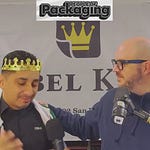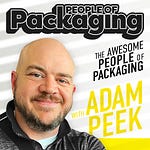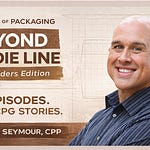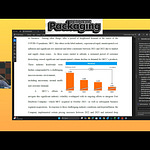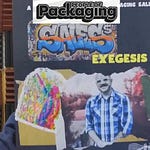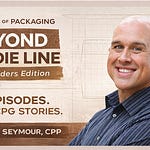Episode 221 was a members only episode of my talk I gave at TLMI in Colorado Springs. I recorded a few of the talks and plan to release those as well to paid members…
Not a paid member?
LINKS!
Specright Summit REGISTRATION!
Sustainable Packaging Podcast w/ Cory Connors
Packaging Unbox’d with Evelio Mattos
Beyond the Shelf with Laura Foti
Meyers Sustainable Packaging Guide eBook
Show notes from Deciphr.ai:
About The Guest(s):
Roger Pielke Jr. is a professor of environmental studies at CU Boulder and has been involved in climate science for several decades. He has a PhD in political science and has worked on various aspects of the climate change issue. Pielke Jr. grew up in Fort Collins, Colorado and has a deep understanding of the challenges and complexities of climate policy.
Summary:
Roger Pielke Jr. discusses the current state of climate change and the challenges of decarbonization. He explains that carbon dioxide emissions from the burning of fossil fuels are the primary driver of climate change and that reducing reliance on coal is a key step in decarbonization. Pielke Jr. also discusses the importance of technological innovation and policy changes in achieving decarbonization goals. He emphasizes the need for realistic and nuanced discussions about climate change and the importance of focusing on the most effective strategies for reducing emissions.
Key Takeaways:
Carbon dioxide emissions from the burning of fossil fuels are the primary driver of climate change.
Reducing reliance on coal is a key step in decarbonization.
Technological innovation and policy changes are crucial for achieving decarbonization goals.
Nuanced and realistic discussions about climate change are necessary for effective action.
Quotes:
"The challenge is actually doing something about climate change because we've had all these meetings and there's 100,000 plus people at a meeting and the curve on greenhouse gas emissions and carbon dioxide in particular, hasn't turned over yet."
"The reality is that it may take a while, but good science almost always wins out over outdated or flawed science."
"The world is grappling with a resetting of expectations, and it's a challenge because the climate community has operated for so long under the assumptions of this very extreme scenario that resetting how we think around a more moderate scenario has some challenges."
"The most carbon-intensive fuel and the easiest one to address is coal. Without a doubt, it's the most carbon-intensive fuel and the easiest one."
"The single most important thing that any of us can do, including people in industry, is to advocate for policies that move the world from burning fossil fuels to getting alternative low or no carbon sources of energy."
Links:





